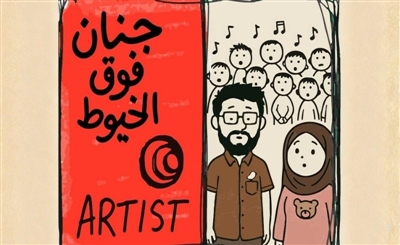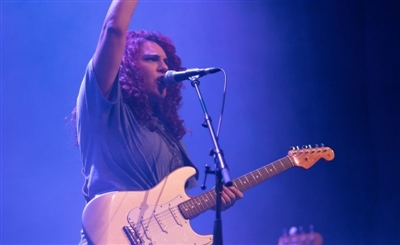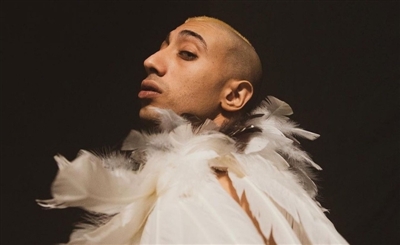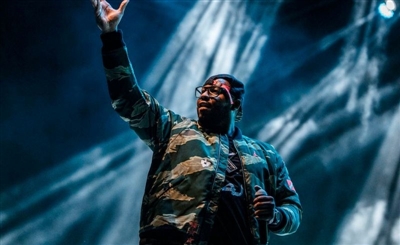MUTEK: Groundbreaking Digital Arts Festival Returns to Dubai
State of the art audio-visual experiences paired world class electronic artists are coming to Dubai between October 14th and 19th.
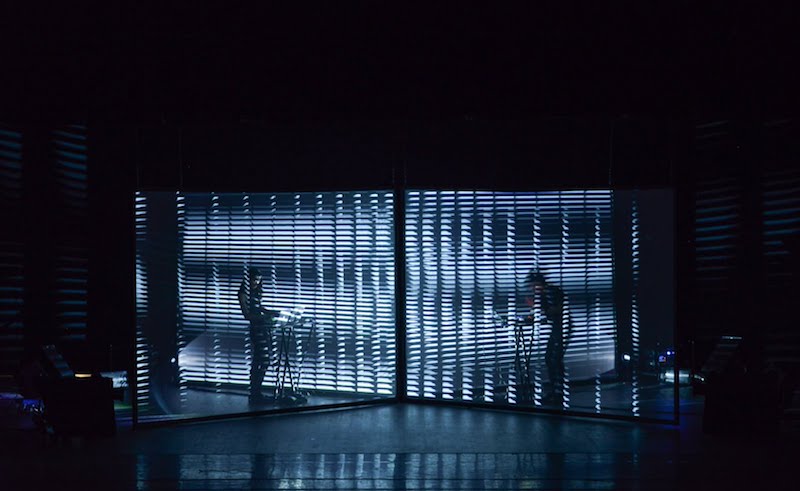
Being the futuristic metropolis that it is, Dubai is no stranger to showcasing anything and everything cutting edge across any and every industry. Thanks to an increasing amount of attention being payed to the arts, electronic music has found its place in the Emirate and all around the UAE fairly easily, so it made sense that the first regional festival to showcase contemporary electronic and digital arts would take place in Dubai.
<iframe width="560" height="315" src="https://www.youtube.com/embed/epeW4do8hr8" frameborder="0" allow="autoplay; encrypted-media" allowfullscreen></iframe>
The festival being referred to is MUTEK; a not for profit initiative founded in Montréal in 2000 with the purpose of spreading and nurturing digital evolvement in the sound, music, and audio-visual fields. Since then, MUTEK has expanded to six more countries - the latest of which is the UAE - becoming a international gathering point for original and avant-garde endeavors.
<iframe width="560" height="315" src="https://www.youtube.com/embed/pBK6crDTHgw" frameborder="0" allow="autoplay; encrypted-media" allowfullscreen></iframe>
The man behind bringing the festival to the Middle East for the first time is founder of event series, Analog Room, Mehdi Ansari. Last year’s edition took place over four locations ranging from the W Hotel to Dubai’s Knowledge Park and brought in the likes of Jeff Mills, Dasha Rush and Habibi Funk along with cornerstones of the Dubai and regional music scene like Shadi Megalla, Abri, Siamak Amidi, Etyen and Mehdi himself who all more or less all experimented with different sounds and approaches than what they normally bring forth.
<iframe width="560" height="315" src="https://www.youtube.com/embed/oRGeJoej5VA" frameborder="0" allow="autoplay; encrypted-media" allowfullscreen></iframe>
This year will be running between October 14th and 19th at several locations including Dubai’s World Trade Center, Stereo Arcade and Knowledge Park Amphitheatre with a program that will encompass 360° immersive live performances, club events and music production technology showcases, along with performances from the renowned A Guy Called Gerald and Iran's experimental icon Sote. We spoke to Mehdi to find out more about why he brought MUTEK to the UAE, what to expect from this year’s issue and how the festival benefits the region.
How did you learn about Mutek?
I learned about Mutek through David Moufang, aka Move D. I was in Canada when he invited me to meet him at MUTEK in Montreal. It was a very special time for me to see such a unique approach toward digital creativity and electronic music. We ended up meeting with the founding team and, four years later, we had our own MUTEK in the Middle East.
Why did you first decide to bring Mutek to Dubai last year?
I started back in 2012 with Analog Room which is a dance event focused on non commercial and artistic scene of electronic music; a place where pop finds its new ideas. Planning to introduce digital creativity as a cultural tour and digital art as our generation’s way forward, I needed to be able to approach a wider target audience and that could not happen with focusing only on the party people who attend dance events. We needed a festival that is not just a new dance event. We needed something that could provide a wide range of art forms, technical showcases, cultural talks and visual performances. Because the content is natural and just like life, involving all senses, the event became relatable to everyone.
What was the reception for Mutek like in 2017?
We had a very successful presentation on what is MUTEK’s approach toward digital art and what it can possibly offer. We gained a lot of experience on how our culture reacts to such an event and what they expected. We never had anything to refer to terms of research, so we had to improvise, take a risk and now we can adapt the concept for our region. Having a bigger focus on visual content is one of the changes we made this year, which was based on feedback from 2017.
Can you tell us briefly what you have in store for this year’s edition?
We have a major partnership with Gitex Future Stars, where we are going to find a technological gateway to introduce our artistic approach. From a three-day festival last year, we managed to curate a six-day of program, which is heavily focused on audiovisuals. Over 20 artists will come for this edition, in three different venues across four programs: four days at Dubai World Trade Center with 'Hemisphere 141' which is a 14 meter geodesic dome with full immersive projecting capability in collaboration with SAT Montreal; four days of 'Digi Lab' to showcase the latest of electronic music gear in partnership with Media Cast; two performances at Dubai Knowledge Park’s Amphitheater on Friday afternoon as 'A/Vision'; and two nights of Live - real time electronic music performances at Stereo Arcade in JBP on Thursday and Friday evenings.
How do you think a city like Dubai benefits from a festival like Mutek?
Digital art is the medium of our generation. Helping to recognise this as a cultural tool can do wonders. This is not only limited to Dubai, but also the whole region. This is just the beginning for MUTEK and year by year, we will be showcasing what our artists and talents were wishing to have in the past years.
So what role do you fill in bringing the concept to Dubai? And how hands on are you with its execution?
We are a very small team. I work as the General and Artistic Director, but everything is planned, set and done through our team. Just as any manager needs to get his hands dirty sometimes, I am no exception. I come from a background where I did everything myself. This is a different time and a big project so execution requires big teams of design, build and production. But being involved in the execution is where you gain the experience and learn how to manage any crisis situation, should you ever get into one.
Follow MUTEK.AE on Facebook and head to their official website for more info.
- Previous Article Getting Abyusif
- Next Article 23 Must-Watch Middle Eastern Music Documentaries
Trending This Month
-
Nov 24, 2025



